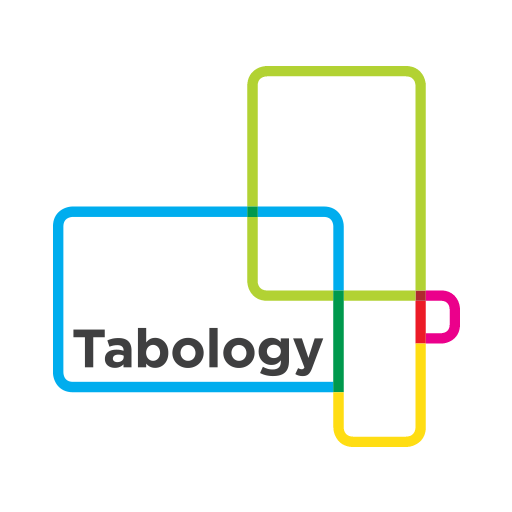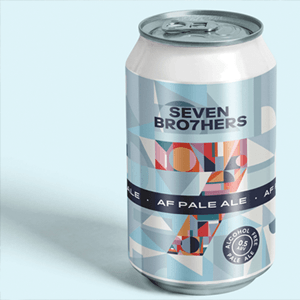Demystifying card processing fees for hospitality businesses
Card processing fees can vary widely between providers, and you can end up paying thousands of pounds more than necessary every year if you don’t get the best deal.
We know from conversations with hospitality operators that many don’t fully understand the ins and outs, which means they end up paying too much.
To help you avoid that, we’re going to demystify card processing fees. If you find yourself looking at your card processing invoice and feeling bemused by all the figures, you’re in the right place.
We’ll go through it all with a fine-toothed comb: how they work; what fees you can negotiate and which you can’t; different ways your fees can be structured; factors affecting how much you’ll pay; and yes… those hidden fees that can cost you money. This knowledge will make you better prepared to get the best deal.
How do card processing companies determine your rate?
Most (but not all) payment processing companies use your card turnover and average transaction value to determine the rate, so they will request to see your previous card statements before giving you a quote. Hospitality businesses tend to have higher rates than retail and other sectors, due to the higher risk of chargebacks and card-not-present payments.
Larger companies with higher card payment volumes usually get better rates thanks to their scale. So higher-end restaurants where every transaction is a three-figure sum will generally get a better rate than cafes and pubs with lots of sub-£20 transactions.
While you have some negotiating power, it’s unlikely that companies will come down significantly from their initial offer. So shopping around the different providers is often how you get the best deal.
However, the best deal does not always equal the lowest headline rate (we’ll go into this in more detail below). It’s also worth bearing in mind that certain POS providers tie you into using their payment processing services, so you can’t shop around.
What makes up your overall card fees?
Your card fees are made up of three main components:
- Card scheme fees
- Interchange fees
- Processor fees (or processor markup)
Card scheme fees (non-negotiable)
The card schemes (Visa, MasterCard, AMEX, etc) charge your business’s bank for using their infrastructure. You can’t avoid or reduce these fees. They can vary depending on the type of card and whether it’s a contactless or chip-and-pin payment.
Interchange fees (non-negotiable)
The customer’s bank charges your business’s bank a fee to cover the cost of processing the transaction – this is known as the interchange fee. This varies depending on the type of card used. In the UK, the payment systems regulator caps them at 0.2% for debit and 0.3% for credit cards. However, caps don’t apply to AMEX cards, non-UK transactions, or commercial cards used for business expenses.
Processor fees (negotiable)
Every business that takes card payments needs a card payment processor (such as PayPal, Dojo, Teya, Square, SumUp, etc). These companies charge a fee (sometimes called a processor markup) for handling every payment.

How are card processing fees displayed on your invoices?
Your card processing fee will be presented in one of three ways:
Blended rate
Most UK hospitality businesses (~95%) will pay a blended rate. This is where all the fees are grouped together into a single fee on your invoices, often referred to as the Merchant Service Charge (MSC). This gives smaller businesses simplicity and predictability, as you know how much you’ll pay for each transaction. The downside is that it’s harder to know where that money is actually going.
Interchange+
Businesses that turn over £10 million a year in card revenue may be offered Interchange+ as a payment model. This is where you pay the Interchange fee + a quoted rate that includes the card scheme fees and the processor fee. This makes it easier to see the markup you are paying to your processor, but you still won’t see exactly what this is for each transaction, as it is wrapped in with the card scheme fees.
Interchange++
Businesses turning over £50 million a year could be offered Interchange++ payments. This is where you pay the exact interchange fee + the card scheme fees for each transaction + a quoted rate that is purely the processor fee.. This gives the highest level of transparency, as you can see exactly how much of your card fee is taken up by the processor markup.
What your blended rate could look like
As we’ve said, your blended rate incorporates all three of the fees together. However, it can get confusing as the blended rate may be displayed in one of two ways:
- a percentage of every transaction
- or a percentage + authorisation fee (usually 2p-6p).
Don't confuse
percentage + auth fee billing with interchange+ (or interchange++). If your pricing does not explicitly separate the interchange fee (quoted as “interchange fee” as this isn’t a fixed amount), you will be on a blended rate.
Percentage per transaction
Paying a flat percentage of every transaction can be simpler and more predictable. However, the ‘headline rates’ some providers advertise – which can be as low as 0.3% per transaction – are rarely what you end up paying, as some of the additional fees we look at below are also likely to apply.
Percentage + Pence per transaction (authorisation fee)
Some card payment processors will charge an authorisation fee – usually 2p-5p per transaction – to cover the cost of checking the validity of the card and if there are sufficient funds for the transaction.
This is where you have to be careful. A fee of 0.3% + 4p per transaction might sound better than 0.6% per transaction. But it depends on the value of the transaction:
Say you have the choice between a flat 0.6% rate, or blended rate of 0.3% + 4p.
On a £6 payment, a flat percentage would result in the lowest fees:
- Flat 0.6% rate → 3.6p in fees ✅
- 0.3% + 4p per transaction → 5.8p in fees ❌
But on a £20 payment, a percentage + auth fee would result in the lowest fees:
- Flat 0.6% rate → 12p in fees ❌
- 0.3% + 4p per transaction → 10p in fees ✅
So it’s vital to understand your average transaction value to make sure you’re getting the best rate for your business.
Pro Tip
A quick way to work out your overall rate is to divide your monthly card fees by your monthly takings, then multiply that by 100 to give you a percentage (make sure you include all your fees in this calculation).
For example, say your venue has taken £37,500 by card this month, and paid £225 in fees.
225 ÷ 37,500 = 0.006
0.006 x 100 = 0.6
So your card processing rate would be 0.6%
Be aware that your terminal rental fees may be charged on a separate bill to your processing fees, so always check this when given a quote. If your terminal rental is charged separately, you will need to factor this in when calculating your true rate.
Let’s say the business in the above example paid for two terminals at £20 each per month. That would take their fees to £245, and their actual blended rate to just over 0.65%
Additional fees you could pay
Below are the components of the blended rate you could pay, including some of the costs that card payment processors need to cover.
Below are some additional fees that may affect how much you pay. Some of these, such as PCI charges and same-day settlement, may be included within the blended rate you see on your invoice. But others are likely to be listed separately.
Terminal rental
This usually ranges from £10-£30 per device, per month. Some providers let you buy them upfront, which can save you money in the long run, and some offer free terminals as an incentive.
Minimum monthly fees
Some payment processors set a minimum monthly service charge, guaranteeing them a baseline. This is usually between £10 to £30 per month, but most venues don’t need to worry about this as they will clear the threshold anyway.
Premium card fees
Premium and corporate cards, such as AMEX, charge higher fees (partly because they need to fund their customer service and reward programmes).
Card-not-present (CNP) rates (negotiable)
This includes payments made during online bookings and phone reservations, and keyed-in payments. Since these transactions are more vulnerable to fraud, the fees are often significantly higher.
Payment Card Industry (PCI) compliance charges
All payment processors need to invest in staying compliant with industry standards, and they recoup these costs through merchants. Many operators will need to complete the Payment Card Industry (PCI) Data Security Standard Self-Assessment Questionnaire and Attestation of Compliance annually, to avoid PCI fees. However, some providers are inherently PCI compliant, so operators using their card processing services don’t need to worry about the self-assessment or fees.
Same-day settlement
Some providers offer this as standard. It’s where funds taken via card payments arrive in your business account on the same day, seven days a week (it’s sometimes called 7-day settlement).
However, other providers only offer it as an optional extra, in which case it incurs an additional fee. Without same-day settlement, you may have to wait until Tuesday or Wednesday to receive funds that your venue took over the weekend. So keep an eye on your cash flow, and decide whether you really need same-day settlement if your provider only offers it as a paid add-on.
The key thing with card fees is to check your bill.
Make sure you understand everything on there, and if there is a fee displayed that you don’t recognise or understand, ask your payment provider to clarify it.

Ad hoc or one-off fees you might have to pay
Setup fees
Some processing firms might charge you an initial fee to set up your account.
Refund fees
Some processing companies charge a small fee (20p-50p) for refunds initiated by the merchant (you). As the merchant, the initial authorisation fee for the transaction is non-refundable, so it’s sensible to try and minimise refunds. However, they are preferable to chargebacks…
Chargeback fees
Chargebacks happen when a customer disputes a payment because they believe it shouldn’t have been taken. Customers raise these disputes directly with their card provider, who then initiates a reversal of the card payment. This means money can leave your business account without you knowing why.
It then involves significant admin to investigate and communicate with the customer, and can risk reputational damage – both with customers and with payment processors. Processing companies typically charge £15-£25 per chargeback – even if the customer’s initial dispute is not upheld – so you really want to avoid them as much as possible.
Cross-border fees
Foreign cards and payments incur a higher rate than domestic ones. This varies between providers, and is only really a concern if your venue gets a lot of custom from foreign visitors.
The cost savings that won’t show up in your invoice
When weighing up the numbers, it’s tempting to chase the lowest possible rates. But remember, your card payment processor affects how quickly and smoothly your entire venue operates, so reliability and speed often matter more than shaving a fraction off your fees.
Every second counts. If the card machine in your bar crashes or slows down on a busy Friday night, you could lose out on hundreds of pounds – not to mention the frustrated customers who might decide not to come back.
Likewise, if a terminal in a coffee shop takes just two seconds longer to process each payment. That can add up to 10 transactions lost every hour across the peak morning commute.
With that in mind, paying a slight premium could be worth it – paying 0.1% more on your card fees might cost you £100 for every £100k you process. But losing a single Friday night’s worth of trade because your payment systems went down? That could be thousands up in smoke.
Most providers have a status page where you can see how many issues and outages they’ve had in the last year. You should be able to find it with a quick Google search and get an idea of a provider’s reliability.
If speed and efficiency are a priority, you should also consider
which payment processors integrate with your hospitality EPOS. Integrated payments send payment amounts directly to the card reader, removing the need to manually input them, making transactions faster.

Conclusion – no one-size-fits-all
As you’ve no doubt gathered, payment processing fees can be a bit of a minefield. But we hope you now have a clearer picture of how they work, and feel armed to compare what the different companies are really offering you.
At Tabology, we have a wealth of experience with payment solutions, and we partner with multiple payment processing providers. This means we can give you objective support in finding the best payment processing solution for your business when you choose us as
your hospitality EPOS provider.
To get started with hospitality tech that truly works for your business,
get in touch
with our experts for a free, no-obligation consultation.





